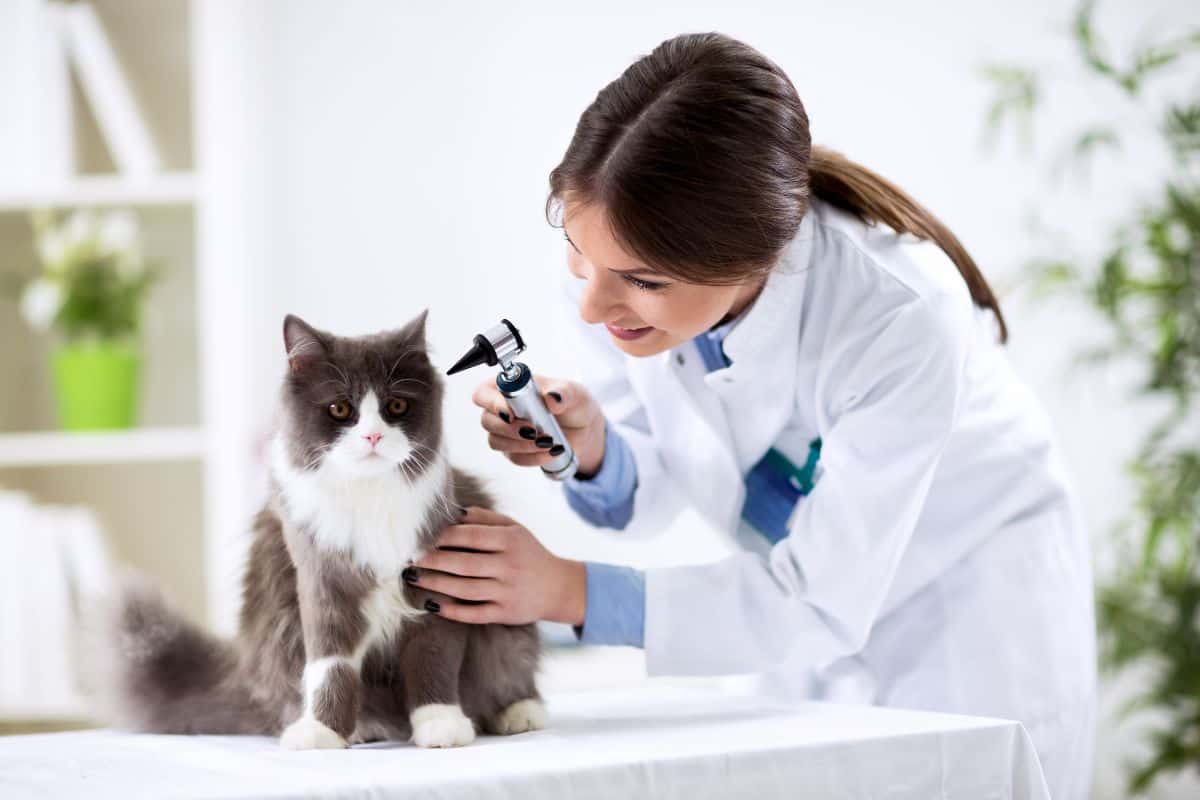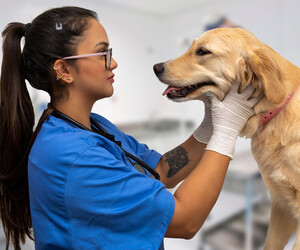Inoculation Standards From Your Trusted Veterinarian
Vaccination standards supplied by your relied on veterinarian play an essential role in safeguarding your pet's health and wellness and wellness. Additionally, dealing with common false impressions surrounding vaccines can better boost pet dog proprietors' self-confidence in these preventive measures.

Value of Inoculations
Inoculations play a critical function in safeguarding pet dogs versus a variety of preventable diseases. By promoting the body immune system to recognize and deal with certain microorganisms, injections significantly lower the incidence of infectious diseases that can influence a family pet's health and wellness and long life. Not only do inoculations shield individual pets, however they additionally contribute to herd resistance, therefore lowering the overall occurrence of diseases in the pet population.
Timely inoculations assist to alleviate the spread of diseases such as rabies, parvovirus, and distemper, which can have extreme repercussions for both family pets and humans. Inoculations are often a demand for boarding facilities, grooming services, and pet parks, making them vital for those that want to socialize their pet dogs.

Core Vaccines for Family Pets
While the particular inoculation demands of pet dogs can differ based on specific variables, core injections are widely suggested to safeguard versus one of the most common and severe illness (Emergency Vet). Core vaccinations are those deemed necessary for all pets, no matter of their way of life or geographical area, as they protect against potentially deadly and very contagious health problems
For dogs, the core vaccines include those for canine distemper, parvovirus, adenovirus (hepatitis), and rabies. Adenovirus can result in liver disease, while rabies is a zoonotic condition that postures a threat to both people and animals.
In felines, core vaccinations include feline panleukopenia, feline calicivirus, feline herpesvirus (rhinotracheitis), and rabies. Feline panleukopenia is a highly contagious viral condition that influences the immune system and intestinal tracts. Calicivirus and herpesvirus are major factors to upper respiratory infections in cats, while rabies stays a vital problem for public health.
Seek advice from with your veterinarian to guarantee your pet dogs get their core inoculations on schedule.
Non-Core Vaccines Explained
Non-core vaccinations are customized to deal with specific threats connected with a pet dog's direct exposure, setting, and way of living to specific diseases. Unlike core vaccines, which are globally recommended for all pet dogs, non-core vaccinations are considered based on specific situations. These vaccines are specifically important for pets that might come across distinct virus as a result of their geographical area, traveling behaviors, or tasks.
Instances of non-core vaccinations consist of those for Bordetella bronchiseptica, which is linked to kennel cough, and Lyme disease, triggered by ticks. Pets that frequently communicate with various other animals, such as those in boarding centers, canine parks, or brushing atmospheres, may take advantage of Bordetella vaccination. In a similar way, if you live in an area where Lyme illness is common, immunizing versus this condition can be a sensible option for outdoor-loving canines.
Other non-core injections may include those for leptospirosis, canine flu, and feline leukemia, depending on the his explanation details risk elements present. It is important to have an extensive conversation with your vet regarding your pet's way of living and the possible demand for these injections, guaranteeing a tailored inoculation technique that best protects your fuzzy pal.
Inoculation Schedule Overview

As pets develop, it is very important to stick to the suggested booster vaccinations. Veterinarian Enterprise. For grown-up pets, core vaccinations are generally provided every one to 3 years, relying on the specific vaccine and regional policies. Non-core vaccinations might be suggested based upon way of life aspects and regional illness prevalence, necessitating a customized technique
Regular vet examinations are vital for upgrading inoculation routines. Your veterinarian can supply assistance on the most suitable immunizations for your pet dog, considering age, health and wellness condition, and environmental dangers. By remaining aggressive and notified, pet dog proprietors can guarantee their furry friends receive reliable and timely inoculations, thereby protecting their wellness and health throughout their lives.
Usual Misconceptions Regarding Injections
False impressions concerning pet inoculations can result in confusion and reluctance amongst pet owners relating to the immunization procedure. One prevalent myth is that injections are unnecessary for indoor animals. While it's true that interior pet dogs face reduced risks, they are not completely unsusceptible to diseases, as pathogens can be introduced through various methods, including human apparel and various other animals.
Another false impression is that vaccinations can trigger the conditions they intend to protect website here against. In fact, most vaccinations have suspended or attenuated virus, which can not trigger condition in healthy and balanced animals. Some family pet proprietors also think that their family pets must not be vaccinated if they are already healthy and balanced; however, inoculations are an aggressive step that aids prevent the start of illness.
Additionally, lots of animal owners fear that injections will lead to long-term health issues. The advantages of vaccination-- safeguarding pets from possibly dangerous diseases-- much outweigh the dangers.
Conclusion
In summary, adherence to vaccination guidelines is crucial for ensuring the wellness and longevity of family pets. Core vaccines supply important defense against serious illness, while non-core vaccines address specific risks based on private way of livings. Developing a detailed inoculation timetable, together with normal vet check-ups, promotes ideal health and wellness administration. Dispelling typical misconceptions bordering vaccinations additionally strengthens the value of informed decision-making in animal care. Inevitably, a proactive technique to vaccinations is important for preserving pet wellness.
Not only do inoculations secure private pets, but they additionally add to herd resistance, thus lowering the general frequency of conditions in the pet dog population.
False impressions about pet dog vaccinations can lead to confusion and unwillingness among family pet proprietors pertaining to the immunization process. While pop over to this site it's real that interior animals encounter reduced risks, they are not completely immune to diseases, as pathogens can be introduced with various means, including human apparel and other family pets.
Some pet proprietors also believe that their pets ought to not be vaccinated if they are already healthy and balanced; however, vaccinations are a positive measure that assists protect against the onset of health problem.
The advantages of inoculation-- securing family pets from potentially dangerous diseases-- far exceed the risks.